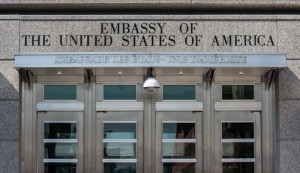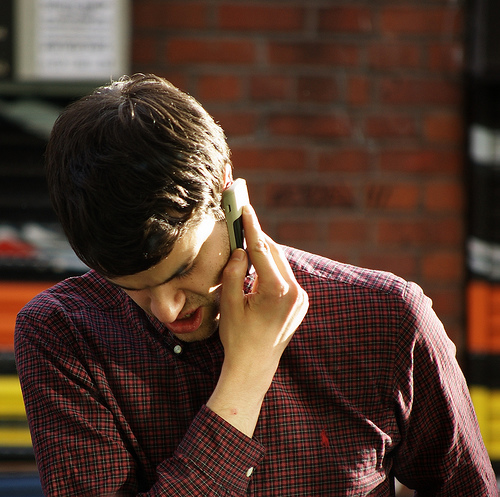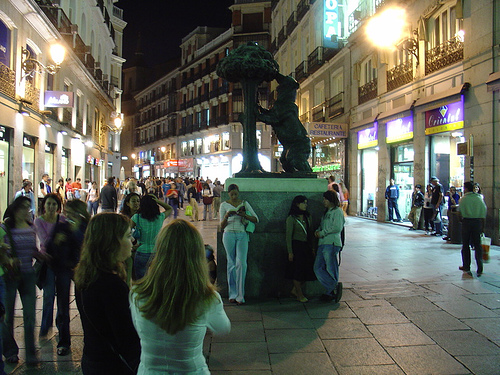In Part One of our series, we offered tips on staying healthy when you study abroad. In addition to your healthy habits, you should also be aware of some safety concerns you could encounter while you’re away from home. Since a new school year is just around the corner, in Part Two, we’re sharing the following safety tips to consider before you journey abroad:
Review Travel Warnings and Alerts
 While you’ve likely researched your host country prior to enrolling in your study abroad program, it’s a good idea to stay up- to-date on the U.S. State Department’s current travel warnings and alerts if any are in place for your destination (that goes for any nearby countries you plan to visit as well). Travel warnings are issued when long-term conditions make a country too dangerous or unstable for U.S. citizens. On the other hand, travel alerts are issued when short-term conditions that necessitate extra caution for U.S. citizens traveling to that area. For additional guidance regarding the security landscape of your host country, visit the site’s Country Specific Information pages, where you can find safety information such as crime rates, places to avoid, and any other threats to your personal safety. Also, don’t forget to register your trip with the State Department’s Smart Traveler Enrollment Program (STEP). It only takes a few minutes to fill out the online form, and you’ll not only automatically receive timely updates on travel warnings and travel alerts via email, but the information you enter (including your emergency contacts) can help the nearest embassy or consulate locate you in the event of an emergency.
While you’ve likely researched your host country prior to enrolling in your study abroad program, it’s a good idea to stay up- to-date on the U.S. State Department’s current travel warnings and alerts if any are in place for your destination (that goes for any nearby countries you plan to visit as well). Travel warnings are issued when long-term conditions make a country too dangerous or unstable for U.S. citizens. On the other hand, travel alerts are issued when short-term conditions that necessitate extra caution for U.S. citizens traveling to that area. For additional guidance regarding the security landscape of your host country, visit the site’s Country Specific Information pages, where you can find safety information such as crime rates, places to avoid, and any other threats to your personal safety. Also, don’t forget to register your trip with the State Department’s Smart Traveler Enrollment Program (STEP). It only takes a few minutes to fill out the online form, and you’ll not only automatically receive timely updates on travel warnings and travel alerts via email, but the information you enter (including your emergency contacts) can help the nearest embassy or consulate locate you in the event of an emergency.
Helpful Hint: Know where the American embassies and consulates are located in your host country and how to contact them – carry this information with you at all times.
Know What to Do in an Emergency
 Keep your mobile phone fully charged and with you at all times, whether you’re in the classroom or out on the town, in case you need to reach out for help. Did you know the phone number for emergency response is not 9-1-1 outside of the United States? The State Department has compiled a handy list of emergency contact numbers in foreign countries—save the number used at your destination in your cell phone just in case you need it. And remember—after you call for emergency assistance, make sure to call your travel assistance provider so they can help you. For example, your travel assistance provider can monitor your medical care if you’re hospitalized, or get you to safety in the event of a political upheaval or natural disaster.
Keep your mobile phone fully charged and with you at all times, whether you’re in the classroom or out on the town, in case you need to reach out for help. Did you know the phone number for emergency response is not 9-1-1 outside of the United States? The State Department has compiled a handy list of emergency contact numbers in foreign countries—save the number used at your destination in your cell phone just in case you need it. And remember—after you call for emergency assistance, make sure to call your travel assistance provider so they can help you. For example, your travel assistance provider can monitor your medical care if you’re hospitalized, or get you to safety in the event of a political upheaval or natural disaster.
Follow Local Road Rules
According to the U.S. State Department, motor vehicle crashes — not terrorism, crime, infectious disease or plane travel — are the number one cause of death to healthy Americans traveling abroad. Check out our post on simple precautions you can take to stay safe behind the wheel when driving abroad. Our advice includes doing some pre-trip planning to understand the laws and driving customs in your destination, bringing a GPS (yes, it’s compatible in other countries!) as well as obtaining an International Driving Permit.
Use Common Sense
Stay alert and trust your instincts – if you’re in a busy market, square or out with your friends enjoying nightlife, be aware of the people and what is going on around you. If you feel uneasy about something, trust your instincts and leave. Be extra cautious of your surroundings at night; stick to well-lit streets and avoid bus and train stations, subways and empty parks. Using a tool such as Google Maps to help you adjust to the streets near your university will help you appear more confident, which reduces your chances of getting hassled by pickpockets who target lost and vulnerable travelers. Do not keep lots of money in your wallet, and keep both your wallet and smartphone tucked away securely on your person. It’s also a good idea to blend in – for example, try not to wear clothing that identifies you as an American such as “I Love NY” T-shirts or college sweatshirts. Try to dress a little more like others from your host country – in fact, you should research its dress code before you travel.
Helpful Hint: Think safety in numbers. Whenever possible, travel with a group. If you must travel somewhere alone, always tell someone where you’re going. As we mentioned previously, keep your mobile phone with you to make it easy for people to contact you should they need to, and vice-versa.
Be Socially Responsible
While your study abroad experience may involve a full course load, it will also undoubtedly present itself with some memorable and fun social outings with fellow classmates and new friends you meet. Often, socializing will lead to drinking. Of course, you’ll want to research the legal drinking age in your destination to avoid any unfortunate legal problems. The golden rule with drinking in other countries is to drink responsibly and among friends you trust (much like it is at home). Alcohol lowers your inhibitions and sense of judgment which can make you very vulnerable to thieves and troublemakers – so our advice is drink sensibly (or not at all!).
 Again, we’ll stress the importance of traveling in groups. We’ll also stress taking a taxi versus getting into a car with someone who has been drinking and is behind the wheel. Check out Yahoo’s Top Ten Taxi Safety Tips for Student Travelers for some helpful taxi safety advice. A night out with friends can also lead to romance, which can then lead to a regrettable decision of unprotected sex and, if you’re unlucky, a sexually transmitted disease (STD). STDs are fairly prevalent among students studying abroad. In fact, one clinic in Madrid reported that 65 percent of the exchange students they see are diagnosed with an STD. If you’re going to be sexually active, the rules abroad are the same as they are at home – practice safe sex and use contraception to avoid STDs or unwanted pregnancy.
Again, we’ll stress the importance of traveling in groups. We’ll also stress taking a taxi versus getting into a car with someone who has been drinking and is behind the wheel. Check out Yahoo’s Top Ten Taxi Safety Tips for Student Travelers for some helpful taxi safety advice. A night out with friends can also lead to romance, which can then lead to a regrettable decision of unprotected sex and, if you’re unlucky, a sexually transmitted disease (STD). STDs are fairly prevalent among students studying abroad. In fact, one clinic in Madrid reported that 65 percent of the exchange students they see are diagnosed with an STD. If you’re going to be sexually active, the rules abroad are the same as they are at home – practice safe sex and use contraception to avoid STDs or unwanted pregnancy.
Are you planning to study abroad this year? Where are you headed and what precautions will you take to ensure your trip is safe and healthy? We’d love to hear from you in Comments below.
Safe travels!
Photo Credits
On the phone from Tim Parkinson
Students in crowded square at night from JM3


